
Information on European qualifications – Things you need to know
Latest
| EVFTA provides boost for agricultural exports to European Union |
| Italian education system & several things before making decisions on study in Italy |
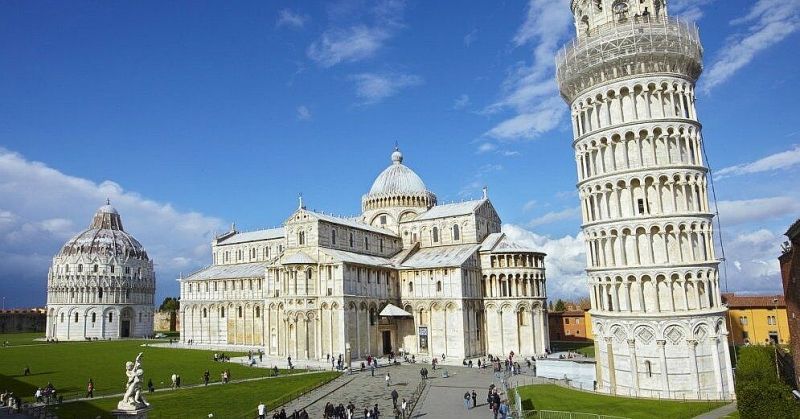 |
| Education systems between countries are not similar to each other, especially the difference in the terms used in education in general and in higher education, in particular, can easily lead to misunderstandings and incorrect career selections, or even worse a qualification that cannot even be recognized. (Photo: the UK) |
The globalization era has opened many studying chances and working opportunities abroad, as well as promoting internationalization in training and science research, therefore a deeper understanding of foreign qualifications has become a necessity. A deeper understanding of foreign courses and qualifications does not only help the students to better determine their aim and future course, but also aid universities in cooperation programs. Education systems between countries are not similar to each other, especially the difference in the terms used in education in general and in higher education, in particular, can easily lead to misunderstandings and incorrect career selections, or even worse a qualification that cannot even be recognized.
With the aforementioned urgency, the research team under the RecoAsia project will clearly present the basic information on the qualifications and their value to help students and agencies operating in the higher education system understand the characteristics of the courses, choose the right university and the courses that are legalized to award degrees and association.
Many terms used in the field of education date back to the Middle Ages. These terms have different meanings depending on the context and the specific historical developments of each educational system. Many degrees have similar names but are different in nature.
On the qualifications, in addition to the personal information of the certificate holder such as name, age ... there is other important information including the Official name of the qualification, training duration, the form of training, admission requirements, qualification and title granted. The content of information on the diploma will be presented in 2 consecutive periodicals. For this article, the research team focuses on analyzing the following information: Official title of the qualification, entry requirements, characteristic of the granted qualification and title.
1. Official name of the qualifications
This is the most basic and important information on the qualifications. Each degree in a given system has its own name that distinguishes itself at the national level and provides course-specific information. As a general rule, when the qualification is used abroad, it is necessary to keep the original title of the qualification without translating in order to maintain its true characters and features.
For example, the term "Master" used in the US and Anglo-Saxon education system is not the same in the education system of Italy, Spain, Russia, etc. For Italy, a Master's degree The doctor must be Laurea Magistrale/Laurea Specialistica/Laurea a Ciclo Unico and Master Universitario 1 (MU1) and Master Universitario 2 (MU2) are only vocational courses and are not part of the national education system for degree training. In Russia, Диплом магистра is a Master's degree. In Spain, Máster official/Máster Universitario is a Master's degree, and Máster Proprio is similar to Italian MU1.
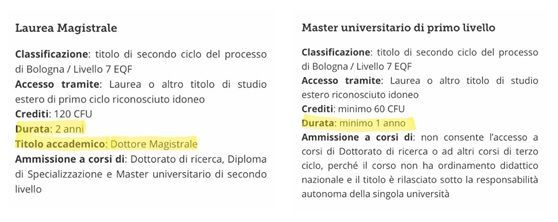 |
| On the Master's degree (Laurea Magistrale), it clearly states that the training period (Durata) is 2 years and the academic title (titolo accademico) which the student receives is a Master (Dottore Magistrale) while in the MU1 certificate the training duration last for at least 1 year and there is an achievable academic title. (Photo: Italian Center for CIMEA Qualifications) |
The official title of the qualification provides the following important information: the full name of the course; Training duration; forms of training; entry requirements; level; the cumulative number of credits; qualifications and equivalent degrees. From the information on the official title of the degree, learners know if this is a diploma or certificate course.
The previous article has clearly explained that in order to get a recognizable qualification, learners must choose courses from the national education system that are subjected to periodic national quality inspection (Note: only degree courses are subject to periodic national quality inspection). Degrees including bachelor's degrees, master's degrees, doctoral degrees as well as certifications from autonomy and public universities are both recognized. Accreditation is the recognition that the University organizes the course, has a diploma or certificate, and recognizes how valuable that diploma is, equivalent to which diploma in the host country and in Foreign countries are two completely different things.
2. Entry requirements
The entry requirements for a master's degree is a bachelor's degree and for Doctorate Degree is a Master’s degree or a bachelor's degree depending on the regulations of each course, each country and are usually accompanied by detailed conditions. The previous article has mentioned the consequences of not keeping the original title of the degree due to differences in the higher education system between countries as well as within the same country (old and new system).
For example A Bachelor’s degree from a Vietnamese university can be translated into Italian as Laurea, but in fact, in certain cases of it get translated into Diploma di Laurea which in the old Italian Education system required at least 4 years of studying and 1 year of writing and defending thesis. The Diploma di Laurea of the old Italian education system is recognized to be an equivalent of a Master's degree (Laurea Magistrale) in the new system and accepted as an entry condition for the training doctor. This results in the students being accepted into the course at the doctoral level without meeting entry requirements. Upon the completion of such cases, despite having completed a nationally qualified degree, the degree still has no value.
3. Degree and characteristics of the degree
Each country has its own reference qualification framework (for example, the 7-level qualification framework of Vietnam VQF, the eight-level framework of Italy QTI, the four-level qualification framework of Spain MECES). The qualification framework is an important factor in the evaluation process, but not the decisive factor because some qualifications are in the same qualification framework but differ in nature and their value cannot be compared.
For example, a Master's degree in journalism cannot be compared with a Journalist or Journalist certificate, even though both are level 6 in the VQF qualification framework of Vietnam. Or with Italy, although Master's degree (Laurea Magistrale) and MU1 certificate are on the same level/cycle 2 and level 7 in the QTI qualification framework, but not equivalent in nature; the MU2 certificate is in the same stage/cycle 3 and 8 in the QTI level framework with the Ph.D. course, but to study to Ph.D., students are still required to have a suitable Master's degree.
4. Title
The name of the course indicates what type of qualification the students should receive, it is academic or vocational, as well as the opportunity to access further studies. Students can only earn degrees only from degree courses. In Italy, upon completing the undergraduate program (3 years) the students are awarded the Bachelor's Degree (Laurea) and recognized as a Bachelor (Dottore). Upon the completion of a Master's program (2 years), the Master Degree is awarded (Laurea Magistrale / Laurea Specialistica / Laurea a Ciclo Unico) and the students is granted the title of Master (Dottore Magistrale); while with MU1 and MU2 certification courses, students are not granted any title.
On the Master's degree (Laurea Magistrale), it clearly states that the training period (Durata) is 2 years and the academic title (titolo accademico) that the student receives is Master (Dottore Magistrale) while in the MU1 certificate with a minimum training time of 1 year and there is no information on the title.
The nature of the diploma and the type of training determines whether the diploma is accepted for further study at a higher level. For example, a Ph.D. course in Italy does not accept MU1 and MU2 certificates, but only a Master's degree.
(to be continued)
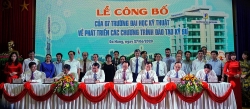
| Danang University of Science and Technology hosts Announcement Ceremony of developing engineering curricula On June 27, the University of Science and Technology – The University of Danang (UD) hosted the Announcement Ceremony of developing engineering curricula with 6 ... |
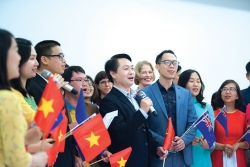
| New Zealand - An ‘Overseas Paradise’ for Vietnamese Students Received the Scholarship of Achievement for international students, Victoria Wellington University, Thi Nguyen, the Vietnamese student shared: “New Zealand is among the most peaceful countries ... |
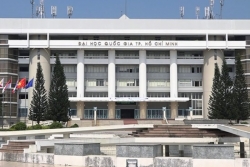
| Two Vietnamese universities finding places in QS world rankings UK educational organization Quacquarelli Symonds (QS) announced its 2021 QS World University Rankings on June 10, with the Vietnam National University (VNU) - Ha Noi ... |




















